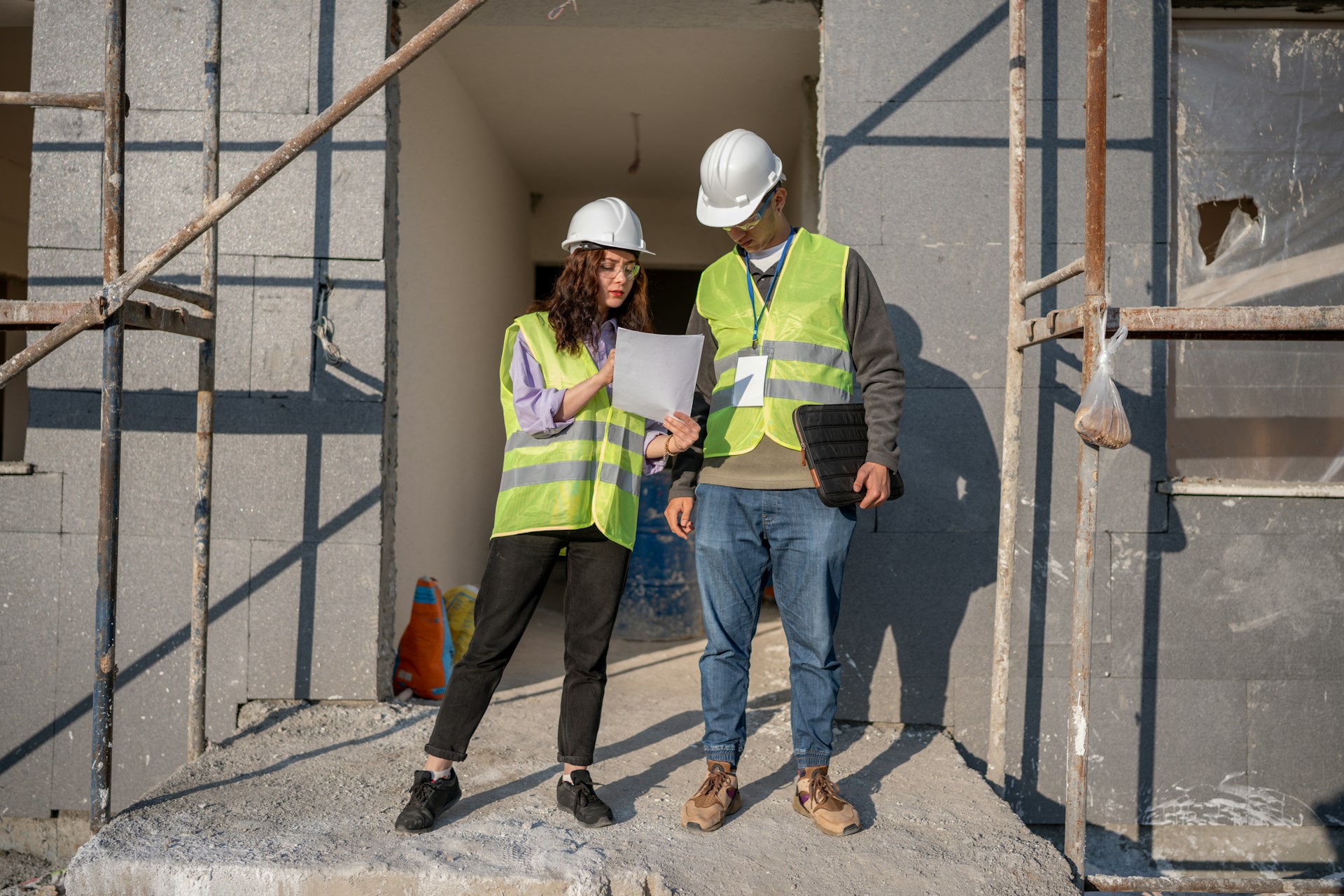Making Admin Tasks Easier with Construction Tools
Managing a construction site can be a complex undertaking, with administrativ...

Construction audits are crucial tools for checking how well a project is going. They help in making sure every part of the construction process sticks to the rules and meets high standards. By using audits, teams can find problems and fix them, making sites safer and work better.
Construction audits play a critical role in maintaining project compliance and accountability. They serve as a formal assessment of a project’s adherence to established regulations, standards, and procedures. These audits ensure that everything on site is operating according to plan and that any discrepancies are identified and rectified promptly.
During audits, common issues often come to light, such as safety violations, budget overruns, or deviations from project specifications. These issues can have significant implications for construction teams, leading to project delays, increased costs, and even legal penalties if they are not addressed. By uncovering these problems early, audits help construction teams make necessary adjustments to avoid more severe consequences down the road.
Audits also contribute to improving overall site safety and quality standards. By rigorously examining equipment, materials, and work processes, audits ensure that safety protocols are strictly followed and quality levels are maintained. This not only protects workers and the public but also enhances the reliability and durability of the projects undertaken. In essence, construction audits are instrumental in upholding the credibility and success of a construction team’s efforts.
Preparing for an audit is crucial to ensure the process goes smoothly and efficiently. One of the first steps is gathering all necessary documentation and tools. This includes inspection apps and digital records, which provide quick access to essential data and facilitate thorough checks. Digital solutions streamline the retrieval and presentation of information, giving auditors a comprehensive overview of the project’s current state.
To make the audit process more organised, teams can employ checklists. These checklists break down each part of the audit, helping to prioritise focus areas that need the most attention. They act as a guide, ensuring that no critical aspect is overlooked during the audit.
Before the audit begins, it is essential to brief staff about what to expect and what their roles will be. Setting clear expectations gears everyone up for what’s ahead and helps them understand the importance of the audit for their work environment. This preparation promotes a positive attitude towards the audit process and encourages cooperation between staff and auditors. By following these best practices, construction teams can anticipate a successful audit outcome, improving their operations and laying the groundwork for continuous improvement.
Performing thorough site inspections requires careful attention to detail and a systematic approach. Strategies for efficient audits include starting with a clear plan that identifies key focus areas, such as safety protocols, material quality, and compliance with construction standards. Auditors should engage with the site, observing and documenting any irregularities or potential areas of concern that may affect the project’s timeline or budget.
Real-time data and technology play a crucial role in capturing and organising audit findings effectively. Digital tools allow auditors to log their observations immediately and generate comprehensive reports that are easily accessible. This ensures a well-organised audit with detailed records that contribute to accurate analysis and decision-making.
Effective communication between auditors and construction teams is essential to streamline the audit process. Tips for enhancing communication include briefing teams before and after audits to ensure they understand the findings and proposed improvements. Open dialogue encourages team members to ask questions and seek clarification, fostering a constructive environment where everyone collaborates toward achieving a safer and more quality-driven site.
Addressing audit findings promptly is vital for maintaining project momentum and mitigating risks. Implementing corrective measures quickly ensures that issues identified do not escalate or cause further disruptions. By prioritising action based on the severity of findings, construction teams can focus on high-impact changes that bring immediate improvements.
Creating action plans based on audit results helps teams enhance future performance. These plans should detail specific steps to correct deficiencies, assign responsibilities, and establish timelines for implementation. Regular follow-up ensures that corrective actions are executed efficiently and evaluated for effectiveness.
Continuous feedback and learning are integral to refining audit processes and fostering a culture of improvement. Encouraging team members to share insights from the audit experience helps identify best practices and areas for future focus. By embracing a cycle of feedback and learning, construction teams can progressively enhance their audit procedures, ultimately leading to better project outcomes.
Construction audits serve as a powerful tool for improving site safety, quality, and overall performance. By systematically evaluating compliance and operational practices, audits provide valuable insights that help teams make informed decisions and enhancements. Whether it’s through conducting detailed inspections, integrating technology, or fostering open communication, audits offer numerous benefits that contribute to project success.
For construction teams looking to streamline their inspection and audit processes and boost their site efficiency, adopting comprehensive solutions like those offered by Edara Apps can make a significant difference. Our tailored systems, designed to integrate seamlessly with your existing operations, ensure you stay ahead in managing compliance and excellence. Experience transformative results with Edara Apps and elevate your construction standards to new heights. Reach out today to discover how we can support your journey toward enhanced performance and safety on every project.
Comments